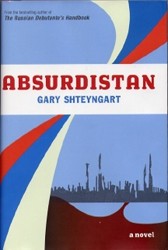Ilya Kaminsky’s astonishing parable in poems asks us, What is silence?
Deaf Republic opens in an occupied country in a time of political unrest. When soldiers breaking up a protest kill a deaf boy, Petya, the gunshot becomes the last thing the citizens hear―they all have gone deaf, and their dissent becomes coordinated by sign language. The story follows the private lives of townspeople encircled by public violence: a newly married couple, Alfonso and Sonya, expecting a child; the brash Momma Galya, instigating the insurgency from her puppet theater; and Galya’s girls, heroically teaching signing by day and by night luring soldiers one by one to their deaths behind the curtain. At once a love story, an elegy, and an urgent plea, Ilya Kaminsky’s long-awaited Deaf Republic confronts our time’s vicious atrocities and our collective silence in the face of them.

Poetry
Deaf Republic
January 1, 2013
Discussion Questions
Ilya Kaminsky’s Deaf Republic is an allegorical tale of resistance. After soldiers murder Petya, a deaf child in Vasenka, the entire town becomes deaf. The townspeople organize against the soldiers using sign language, which is reproduced in the text. Deaf Republic reminds readers that apathetic “silence” in the face of atrocity is an act of privilege: “The deaf don’t believe in silence. Silence is the invention of the hearing.” This is a book that honors historic acts of resilience while also shattering contemporary complacency.

Jewish literature inspires, enriches, and educates the community.
Help support the Jewish Book Council.


